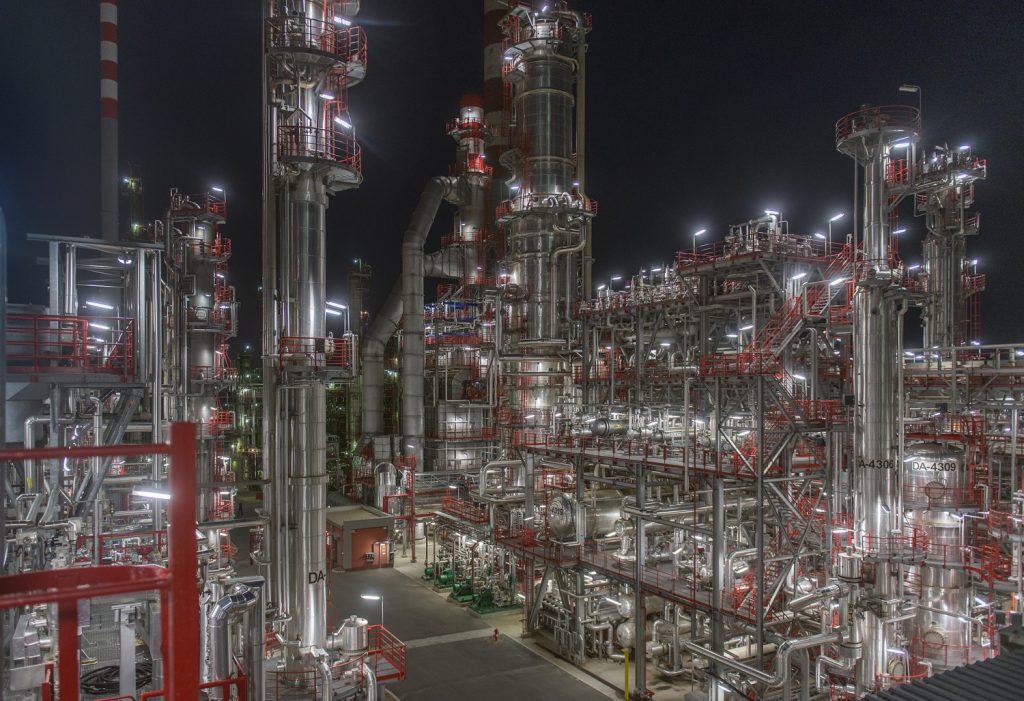Increasing business efficiency and innovation as important trump cards for companies in dealing with the market crisis
The current year is one of the most challenging in the history of the oil industry. Restrictions introduced to stop the coronavirus pandemic have significantly slashed demand for oil and petroleum products, leading to a sharp drop in the prices of these energy products. In just one day in March, the price of crude oil on the global market lost as much as 30 per cent of its value, which is the biggest daily drop in the last 15 years.
The consequences of the reduction in fuel consumption were most felt in April, during the most severe worldwide restrictions. In that month, a historic event took place – the global price of crude oil stood at -40 US dollars per barrel on stock exchanges because oil companies were faced with a lack of storage capacity. While tankers were transformed into floating storage units around the world, oil companies began to feel the effects of the crisis.

Thus, quite a few of them reported a dramatic drop in profits and monetary losses, announced savings at the expense of planned investments, as well as layoffs, as basic measures to protect business and preserve a healthy core for the post-crisis period. Adverse trends have affected all areas of the oil business. In the exploration and production segment, companies have reduced production and postponed the search for new quantities of oil and gas for some better times. At one point, global energy consumption was halved, so that companies’ sales revenues were significantly reduced. Finally, the crisis was also felt in the area of processing, as oil refinery margins reached their lowest level in five years. International Energy Agency (IEA) analysts have estimated a 20 per cent decline in energy investment, or nearly $ 400 billion, this year.
Significant investments of NIS
On the other hand, it is clear that due to fierce market competition, only those companies that continue to invest in development and innovative technologies will survive. In a crisis environment, modernization has become one of the prerequisites for increasing business efficiency and thus recording positive results despite unfavourable market trends.
The Bottom of the Barrel project will bring significant improvements in environmental protection, higher the energy efficiency of the oil refinery, and digitalization of the production process
The largest domestic oil company, NIS, has also moved in that direction. Although adverse circumstances influenced the company’s financial indicators for worse compared to 2019, this company invested as much as 20.7 billion dinars in capital investments in the period from January to September. One of the key projects is the completion of the construction of the Bottom of the Barrel facility in the Pančevo Oil Refinery, a plant worth more than 300 million euros. The complex is expected to become operational by the year-end and will contribute to an increase in the efficiency of oil refining, as well as improve the company’s financial results because the company will be able to produce bigger quantities of fuels that have the highest market value.
Also, the production of petroleum coke will start in Pančevo, with part of the produced quantities destinated for export, which will also boost the competitiveness of NIS on the regional market. In addition, the Bottom of the Barrel project will bring significant improvements in environmental protection, higher the energy efficiency of the oil refinery, and digitalization of the production process. NIS says that increasing business efficiency and further modernization of the company will continue to be the main trump cards in dealing with the crisis in the oil market.